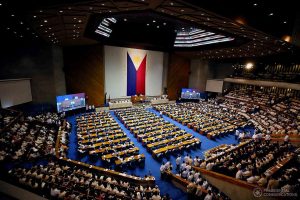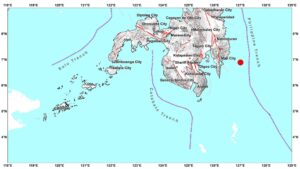PRESIDENT Ferdinand R. Marcos, Jr. signed a measure establishing a national framework for the peaceful and secure use of nuclear energy, expected to accelerate its integration in the country’s power mix.
Signed on Sept. 18, Republic Act No. 12305, the Philippine National Nuclear Energy Safety Act, creates the Philippine Atomic Energy Regulatory Authority (PhilATOM), an independent quasi-judicial body tasked with overseeing all nuclear and radiation activities in the country.
Under the law, PhilATOM will hold sole and exclusive jurisdiction over the regulation of nuclear energy and radiation sources in the Philippines, ensuring their peaceful, safe and secure use.
The new body will consolidate regulatory functions from other agencies and serve as the country’s official counterpart to the International Atomic Energy Agency (IAEA).
Its leadership will consist of a Director General, appointed by the President for a five-year term, supported by four deputy directors general who are likewise presidential appointees.
The PhilATOM will have the power to craft implementing rules, safety standards, and guidelines, and to enforce them through inspections, violation notices, and penalties.
It may also suspend, modify, or revoke authorizations following due process in cases of noncompliance with the law or its regulations.
The new measure affirms the government’s commitment to promoting the peaceful, safe, and secure use of atomic energy to advance national interests in areas such as power generation, healthcare, scientific research, agriculture, industry and education.
At the same time, it imposes a strict prohibition on military or non-civilian applications, making clear that nuclear energy may only be used for peaceful purposes and that any facilities or activities related to nuclear weapons, radiological dispersal devices, or other non-peaceful uses are expressly forbidden.
Republic Act No. 12305 mandates authorization for all nuclear-related projects, including the construction, operation, commissioning, and decommissioning of nuclear or radiation facilities and their associated activities.
To strengthen preparedness for nuclear or radiological emergencies, the law calls for a national response plan — integrated into the National Disaster Risk Reduction and Management Council framework — to mitigate the impact of incidents both within and beyond Philippine territory.
In line with the country’s commitments under the IAEA Safeguards Agreements and Additional Protocol, the law requires oversight of all nuclear activities.
The PhilATOM is tasked with creating a national registry of radioactive waste and spent fuel, covering regulation, documentation, and long-term oversight of disposal sites.
POWER MIXThe Department of Energy (DoE) expects the measure to help boost the integration of nuclear energy into the national power mix.
“The passage of RA 12305 strengthens the regulatory framework that will enable the safe and secure peaceful use of nuclear energy in the country. The law modernizes nuclear regulation consistent with the latest International Atomic Energy Agency (IAEA) standards and global best practices,” Energy Secretary Sharon S. Garin said in a statement on Thursday.
The DoE said that the creation of PhilATOM is crucial to “ensuring that all aspects of nuclear energy infrastructure, such as site selection, construction, licensing, safety, and eventual operation are thoroughly and effectively regulated by a competent authority.”
The generation of electricity from nuclear energy will remain subject to the Electric Power Industry Reform Act and under the regulatory oversight of the DoE and the Energy Regulatory Commission.
The Philippines has been elected to the board of the IAEA, an international organization that works to promote the peaceful use of nuclear energy.
As one of only 35 member-states represented on the board, the Philippines will help steer key decisions on safeguards and technical cooperation.
“The Philippines’ participation in the IAEA Board and the passage of the PhilATOM law demonstrate the country’s commitment to science, innovation, and sustainable development,” Ms. Garin said.
Under the Philippine Energy Plan, the country’s first nuclear power plant is set to be built by 2032. — Chloe Mari A. Hufana and Sheldeen Joy Talavera


















